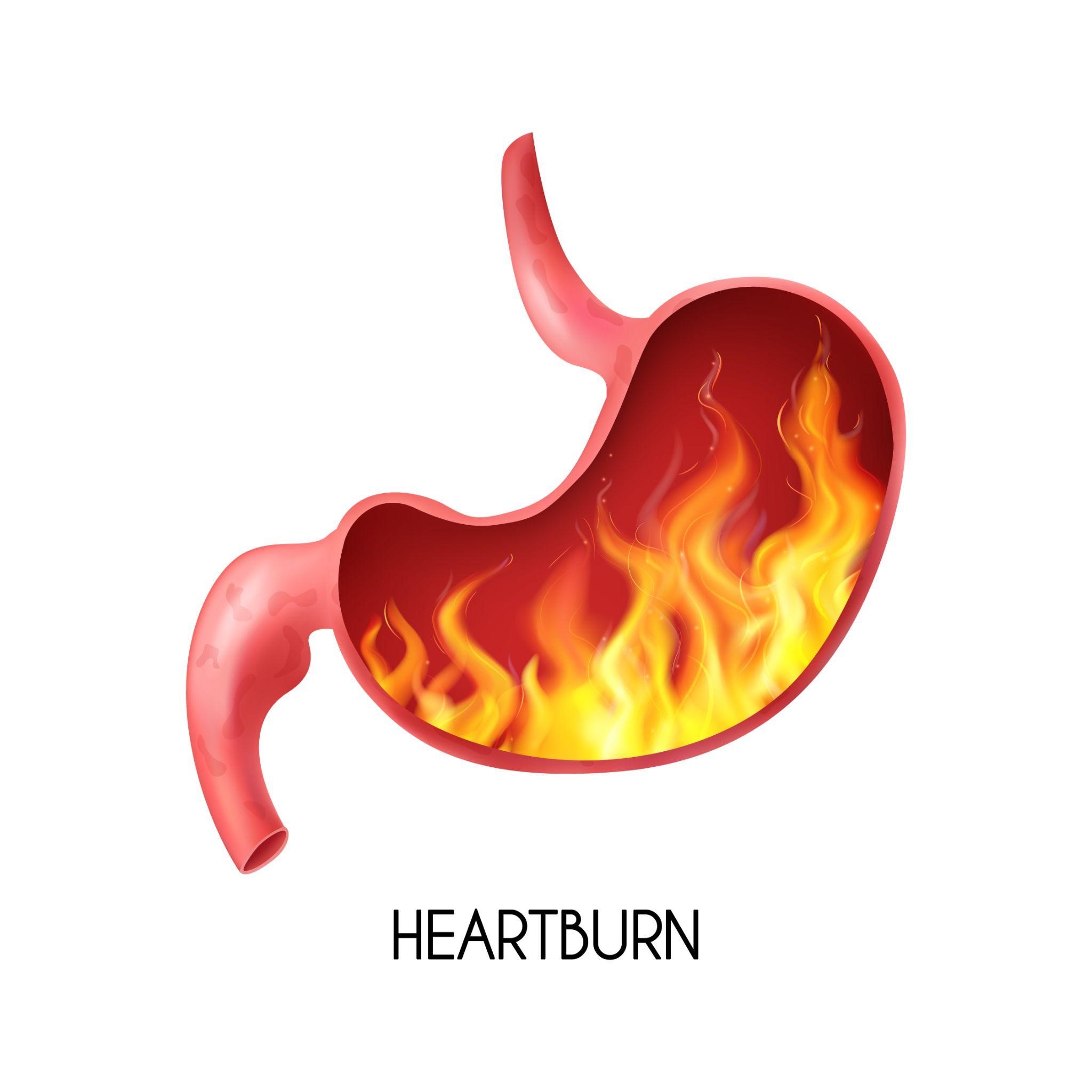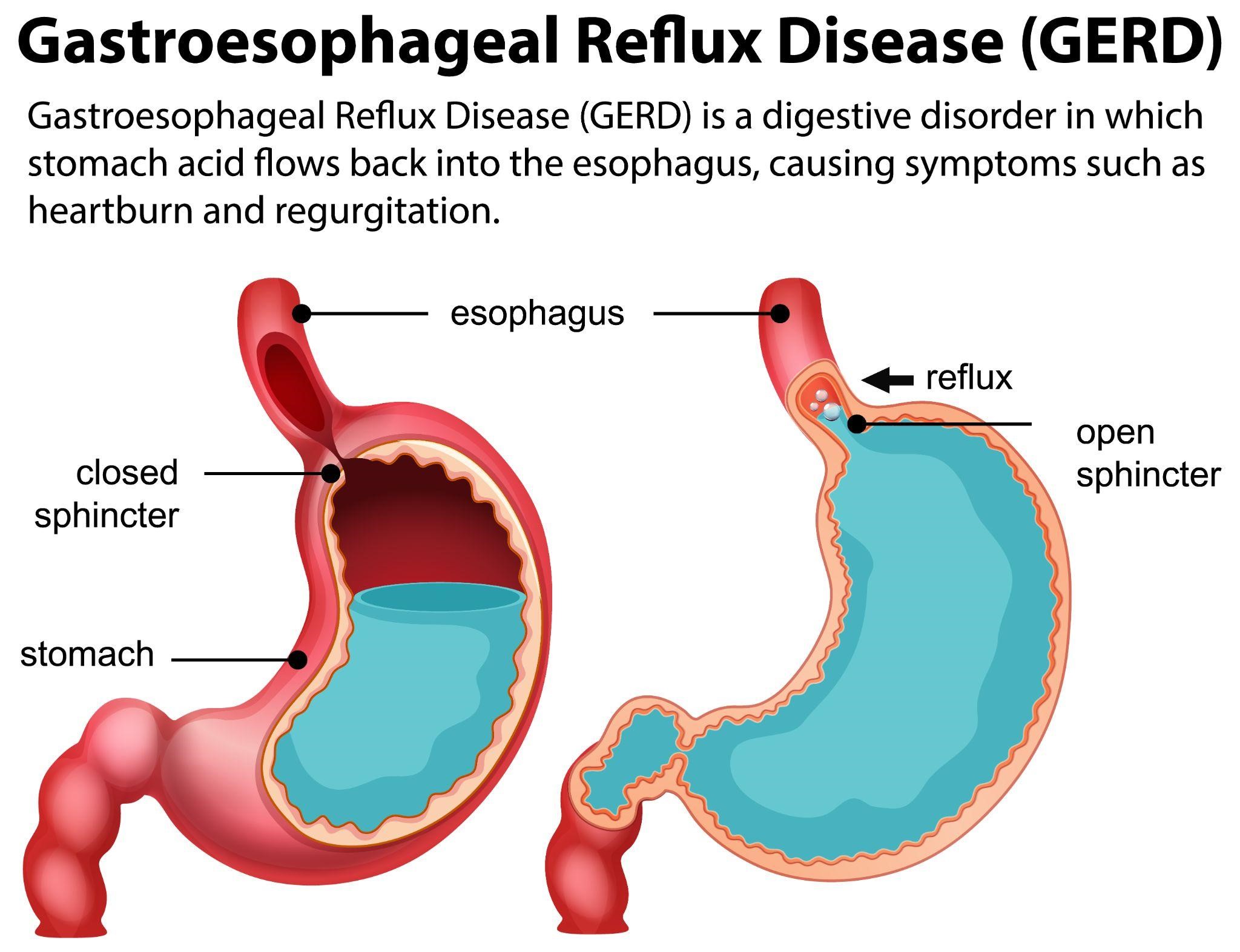Last updated on December 14th, 2024 at 03:09 pm

Gastroesophageal reflux disease (GERD) is a chronic condition caused by stomach contents refluxing back into the esophagus and causing severe pain. Millions of people worldwide are commonly affected by issues like acid reflux and heartburn that are frequently caused by it. This blog post looks at possible GERD therapies in addition to offering sensible guidance and insights to help patients and healthcare providers manage the condition appropriately.
Understanding GERD: Symptoms and Treatment Options
What does GERD mean?
A persistent digestive condition is known as gastroesophageal reflux disease or GERD. It happens as a result of stomach acid constantly running back into the esophageal tube, which connects your mouth to your stomach. Your esophageal lining may get irritated by this backwash, often known as acid reflux.
Gastroesophageal reflux disease (GERD) is a chronic condition caused by stomach contents refluxing back into the esophagus and causing severe pain. Millions of people worldwide are commonly affected by issues like acid reflux and heartburn that are frequently caused by it. This blog post looks at possible GERD therapies in addition to offering sensible guidance and insights to help patients and healthcare providers manage the condition appropriately.
Common Symptoms of GERD
Early diagnosis of GERD symptoms can result in better treatment. Typical signs and symptoms include of :
- Heartburn is a burning sensation that can travel up your esophagus and from your stomach to your chest, abdomen, or possibly both
- This condition is the sensation of an acidic or bitter taste backing up into your mouth or throat.
- Chest Pain: Severe, unexpected chest pain is another possible sign.
- Challenges Dysphagia: Damage to the esophagus can make swallowing challenging.
- Acid Reaction: Chronic inflammation of the throat can cause chronic coughing and sore throats.
Medical Treatment for GERD
There are different treatment methods available for the management of GERD. The ones that medical professionals advise the most frequently are as follows :
- Antacids, which are available over-the-counter, neutralize stomach acid and provide quick relief.
- H2 Blockers: These medications lessen acid production, which makes them less painful for a longer amount of time but take longer to take effect.
- PPIs, or regulators of the proton pump: Stronger than H2 blockers, PPIs reduce acid production and promote esophageal repair.
- Prokinetics: By strengthening the lower esophageal sphincter, these drugs enable a faster discharge of the stomach.
- Surgery: Under serious circumstances, fundoplications and other such procedures may be recommended.

Exploring Holistic Approaches to GERD Treatment
Ayurvedic Treatment for GERD
Comprehensive methods for treating GERD are provided by the traditional Indian medicinal system Ayurveda:
- Natural Therapies: Herbs that help relax the gastrointestinal tract and lessen acid reflux include ginger, liquorice root, and amla.
- Ayurveda advocates for a balanced diet that steers clear of meals that are hot or acidic and instead favour foods that are cooling and alkaline.
- Changes to Your Lifestyle: Stress reduction and better digestion can be achieved by routine exercise, yoga, and meditation.
Home Remedies for GERD
GERD symptoms can be reduced with many home treatments. GERD can be successfully treated at home with these strategies:
As you sleep, elevating the head of your bed can help stop stomach acid from refluxing back into your throat.
- Eat Smaller Meals: Overindulgent eating can exacerbate acid reflux and raise stomach pressure. Eat more often and in fewer bites.
- Avert Foods That Trigger: Chocolate, coffee, wine, and spicy or fatty foods are common triggers. Know these triggers and stay away from them.
- Remain Seated Following Meal: Stomach acid reflux can be avoided by not lying down right after eating.
- Chew gum: Gum can stimulate the production of saliva, which reduces stomach acidity.

Conclusion
The Role of Generic Medicines in GERD Treatment
While offering comparable therapeutic benefits to name-brand medications, generic medications are more affordable :
- Accessibility to long-term care is facilitated by the lower cost of generic medications.
- The effectiveness of these drugs must be equivalent to that of their branded counterparts, meaning they must contain the same active components.
- The accessibility of generics guarantees that patients will always be able to obtain the GERD drugs they require.
FAQs on GERD Treatment
1. What improvements to lifestyle can help control GERD?
Losing weight, giving up smoking, eating smaller meals, staying away from trigger foods, staying up rather than lying down after eating, and raising the head of your bed are all strategies for managing GERD symptoms.
2. Are GERD drugs linked to any long-term risks?
Infections, bone fractures, and nutritional deficits can result from long-term usage of H2 blockers and PPIs. These drugs must be taken under a doctor’s supervision at all times.
3. To what extent do home cures for GERD work?
Though they shouldn’t be used in place of medical care, home cures can offer extra comfort. Herbal teas, baking soda, and apple cider vinegar can support other medical interventions.
4. Does Ayurveda treat GERD?
Natural methods such as Ayurveda can considerably lessen the symptoms of GERD. It is suggested to employ these techniques in conjunction with traditional treatments and under a physician’s supervision.
5. When is the right time to seek GERD surgery?
Usually, surgery is the final option left when trying to manage symptoms with medicine and changes in lifestyle don’t work. See a gastroenterologist to learn more about your surgical alternatives.
